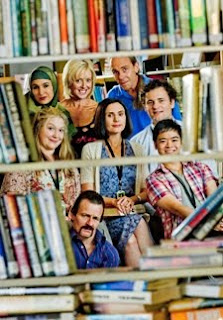APLIS 22(3) September 2009
PUBLIC LIBRARIES: IT’S THEIR FUNDING, STUPID
The first Australian public libraries summit, commendably convened, organised and largely underwritten by the Australian Library and Information Association, was held on 16 July in Canberra. For a summary of its deliberations and outcomes see:
Summit summaryThe 50 or so summit delegates saw much confirmation of the work and importance of Australia’s public library system. But with little federal, state and local government political or bureaucratic presence there to hear and learn, this belated first summit could only point to the real issue for the sector and its advocates. That issue for public libraries, to paraphrase Bill Clinton, is
‘Their funding,
stupid’.It is the issue which now needs to be addressed with much more urgency, energy and collective focus than during the last 20 years or so that it has taken the sector’s leaders, and its members who may sometimes be characterised by their poverty make do mentality − to recognize that it is very underfunded, and have the courage to speak out politically and publicly about it, locally and nationally.
So what’s the urgency, if already about 60% of people of all ages use, value and rarely openly complain about their public libraries? Given the social inclusion emphasis in the summit, consider this. Volume three ‘Bridging the gaps’ of the landmark Victorian research reports Libraries/Building/Communities stated that:
The concern is that, among the 40% not using libraries, there are people who are hard to reach but who would benefit enormously from what the library has to offer. LBC data indicates that about 13% of Victorians fall into this category.Extrapolate this 13% to the Australian population, and about 2.5 million people are currently socially excluded from public libraries. In some communities the percentage will be less, in others it will be much more. At what longterm cost is that to those people, their communities and society in general? With the current level of Australia’s investment in its public library system, that percentage
will not shift, and may even worsen.
The hard facts about public library constraints, performance, valuation, and return on investment are now well discovered. We do not need yet more research to confidently assert that Australia’s public library system has:
* an outstanding return on public investment of conservatively $5 for every dollar spent − nothing else can demonstrate such a high return
* very many more users and potential beneficiaries than any other educational, cultural or civic provision
* on a usage basis, by far the lowest per capital funding of any educational, cultural or civic provision
* at only about 9c per Australian per day, one third of international best practice public library funding.
These realities for Australia’s public library system represent a massive contradiction between the political and bureaucratic platitudes about the importance of public libraries, and the failure of the three levels of Australian government to even meet to establish a national strategy and compact about the development and funding of the nation’s public library system and its capacity to innovate. More pointedly, they represent the failure of the current federal government and the
responsible minister to show leadership in convening such a meeting, and holding the Australian states and territories to account for their public library funding dereliction.
Not much was said, then, about funding as the core public library issue at the summit, although full marks to Jan Fullerton, director general of the National Library of Australia for reminding delegates that the National Library is the only public library funded by the federal government, and for urging them to regard the funding issue as a key part of the debate.
Full marks also to Councillor Graham Smith, chairperson of Public Libraries NSW – Country for his observation that:
One of the major impediments is that many government and nongovernment organizations direct their clients to the public library, but they do not provide the funding for the provision of that public library service. Public libraries are the service desk for so many of our government and commercial organizations and recognition of that role is vital.The British economist W S Jevons argued that:
The main raison d’etre of free public libraries, as indeed of public museums, art galleries, parks, halls, public clocks, and many other kinds of public works, is the enormous increase of utility which is thereby acquired for the community at a trifling cost.Public clocks? Yes, Jevons was writing in 1881, when public clocks were the necessity which they no longer are. Public libraries, however, remain even more consequential to education, community capacity building and social inclusion, than they were with their resources in the 1880s. In Australia they also remain provided at the very trifling cost of $800 million per annum. Triple that to an international best practice $2.4 billion and the cost would still be trifling for a rich nation like Australia – for a demonstrable return to it of at least $14 billion.
So enough of the talking, platitudes, evasion, soft shoe shuffle and timidity about public library funding futures.
It’s well past the time for the leaders of Australia’s public library system and its other advocates to focus on the key issue for it, its funding − and to set short, medium and long term targets, and options for how the three levels of Australian governments should partner in meeting them.
Alan Bundy
Editor
alan.bundy@auslib.com.au













